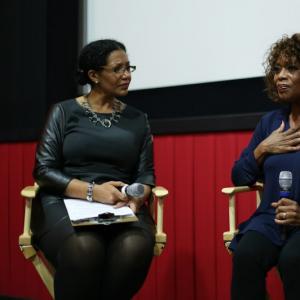
Ben Sutter is online assistant at Sojourners. Ben is a 2013 graduate of Goshen College (Ind.) with degrees in communication and history.
Before coming to Sojourners, Ben dabbled in print, online, and video journalism; radio deejaying; and video production while at college. On campus, he enjoyed strengthening his video and online skills as managing editor for local news blog GoshenCommons.org and as a production assistant for FiveCore Media, an on-campus video production company. Earlier in college Ben worked directed and produced for the on-campus television station, GCTV, and served multiple semesters as a staff writer for the on-campus newspaper, The Record.
A native of South Bend, Ind., Ben grew up as an Anabaptist-Mennonite Christian and especially appreciates its emphases on community, daily discipleship, and personal and structural peace.
He really likes good conversation and good relationships, especially anything having to do with how faith applies to living daily life and anything about how media influences and affects culture. Ben also enjoys theological discussions, especially ones that offer him new viewpoints that he’s never considered.
Ben is a dedicated lover of the Cubs, although the past 10 (read 105) years have not been easy ones to be a Cubs fan, so that love has spread to watching the rest of baseball as well. He enjoys the writing of Malcolm Gladwell, Shane Hipps, and Kent M. Keith and the musical stylings of Shadrach Kabango.
You can follow Ben on Twitter.
Posts By This Author
In Memory of Dr. Vincent Harding, a 'Prophetic Voice for Justice and Vigorous Nonviolence'
Dr. Vincent Harding, a theologian, historian, author, and civil right activist, died at 5:11 p.m. on Monday at the age of 82. Dr. Harding worked alongside Dr. Martin Luther King Jr., as friend, speechwriter, co-collaborator, and served as a mentor and advisor to many of the members of the Student Non-violent Coordination Committee.
Harding's social activism had deep spiritual roots in the Mennonite tradition and the Black church. Dr. Harding was one of the chroniclers of the civil rights movement as a participant, an historian, and social observer. He and his late wife Rosemarie were senior consultants to the "Eyes of the Prize" documentary film project.
Harding was a professor emeritus at the Iliff School of Theology and co-founder with his wife Rosemarie Freeney Harding of the Veterans of Hope Project, at the Center for the Study of Religion and Democratic Renewal at the Iliff School of Theology in Denver. He is also the author of numerous books, including Hope and History: Why We Must Share the Story of the Movement, There is a River: The Black Struggle for Freedom in America, and Martin Luther King: The Inconvenient Hero. Harding wrote King's famous 1967 "Beyond Vietnam" speech.
Jim Wallis, president of Sojourners and a friend of Harding, released this statement in response to Harding's death:
This is a great loss for our movement and the world and for all of us here at Sojourners. Vincent loved and served us so often in our history. He was an elder and mentor to me and to many of us. I am so grateful for a life so well lived. Thanks be to God for Vincent Harding. We are poorer for his passing and richer for having known him.
Making a Difference through Love — and Red Plastic Diamonds
At 5 a.m. on a Friday last August, 20-year-old Joshua Jank’s condition was worsening. Nurses at his hospice home in Fort Wayne, Ind. told his mother to gather anyone who wanted to say a last goodbye.
“Josh spiraled downward very quickly,” Brenda Jank told Sojourners. “In less than two weeks he went from being at home without oxygen to being in the hospice house. He just hit it – a perfect storm.”
It was in the midst of that perfect storm that a movement was born.
Sloth: When Working Isn’t Enough
As preoccupied as I get with working, I love the deadly sin of sloth.
Rather, I love to think that I’m above it. I value hard work and I work hard. I judge my days by my to-do lists and the number of items crossed off at the end of the day. It doesn’t matter if my lists are for work during the day, relaxing in the evenings, or even my time off.
On Saturdays I have a list of friends I need to email and get-togethers I want to plan for the coming week. Usually reading at least one chapter of a book makes the list. So do the normal chores of tidying my room and doing the week’s laundry. Not to mention the long list of news articles or theological blog posts I have constantly open on my computer for reading at any resting moment.
And that’s what my rest looks like.
Now that I’ve made myself look like an industrious and hardworking person, let me be the first to say these lists don’t get done. Note I didn’t say they sometimes don’t get finished. I never finish them.
Coloring the Story
"Radical Jesus: A Graphic History of Faith," Herald Press
THE GRAPHIC NOVEL Radical Jesus, edited by Paul Buhle, has three distinct sections offering different expressions of Jesus’ life and social message. The brevity of the graphic novel medium allows the writers to construct a clear and distinct message in a moving art form.
Part one, “Radical Gospel,” illustrated by Sabrina Jones, uses biblical quotes to construct a visual story that connects the words of Jesus to modern situations. The black and white ink styling is simple yet profound.
While Jesus and his disciples are portrayed as first century Jews, the people Jesus interacts with and tells parables about are all in modern dress. This puts Jesus in an accessible conversation not only with his disciples, but also with the reader. In a collection of Jesus’ sayings from the Sermon on the Mount, the art drives home the emotional impact of his words.
Jones does not shy away from the radical implications of Jesus’ message. My favorite of her modern interpretations is an image of the destruction wreaked by the 9/11 attacks, contrasted with Jesus’ reference to the temple in Jerusalem, where he exclaims, “The day will come when there isn’t one stone left on top of another that is not thrown down.”
When Facebook Is the New Daily Moral Reference
Maybe it’s fitting that I was scrolling through my Twitter feed when I came across this very clickable headline from the AP: “Go Figure: Facebook Read Daily More Than Bible.”
Ouch. That one hits pretty close to home. That aimless scrolling through my Twitter feed could just as easily have been time well spent in front of the Good Book. Has my daily devotion to social media really eclipsed my daily devotion to spiritual practice?
After 10 years of operation, Facebook has usage stats that put it in the stratosphere of dedicated readers. Just over half of adults in the U.S. and Canada use Facebook daily. The same cannot be said for the Bible or other religious texts. Really, it’s not even close.
The AP story notes that Facebook “says worldwide it has 757 million daily active users. Of those, 19 percent are in the U.S. and Canada, so that's more than 143 million people checking Facebook daily.”
Compare that to these numbers from the same article about those who read a religious text every day: “A 2006 CBS News poll found 15 percent of U.S. adults read the Bible or other religious texts daily. There are about 267 million adults in the U.S. and Canada. That means about 40 million people reading the Bible daily.”
In a country where 79 percent of adults claim some sort of religious affiliation, less than a quarter of that number statistically reads their religious text daily. Historically the term “People of the Book” has referred to the Jewish people and their reverence for the Torah, their holy law. Perhaps those of us in the U.S. should call ourselves “the people of Facebook.”
Bad religious puns aside, personally, I’ve never been one to read my Bible with much consistency, and certainly not on a daily basis. While I’ve tried my fair share of daily Bible reading programs, plans, and even Bible apps, I’ve yet to develop the habit of daily reading.
Three Worlds Collide in 'Jerusalem,' the City and the Film
The old city of Jerusalem is smaller than one square mile. In 5,000 years of recorded human history there have been 180 conflicts around the city. It has been conquered 44 times, and completely destroyed twice. The story of conflict in this city is clearly not a new story.
When the producers of Jerusalem, a new movie for IMAX and other giant screen theaters, decided to approach the topic, they wanted to bring a fresh perspective to the long history.
“Jerusalem is a city in conflict,” said Taran Davies, one of the producers of Jerusalem, at a recent screening of the movie. “We wanted a new way to think about it. This [movie] is more a celebration.”
Rapper Shad Wrestles with Humanity and Humility
There is no mistaking it: Shad Kabango's music is authentic and tenacious. With incredible humility, he speaks from his heart, with no fear of calling out the inconsistencies he sees in the world.
In the recent release of his 4th studio album, Flying Colours, the critically acclaimed Canadian emcee, better known as simply "Shad," hopes his music speaks for itself.
"It’s not easy to summarize or convey, I don’t think," Shad said of the theme of the album, in a recent interview with Sojourners. "Some sort of … feeling of hope, I guess, but hope within the complexity of real life and the challenges of real life."
Libertarians: Young, White, and Male
Libertarians do not consider themselves a part of the Tea Party movement, a new study on public religion found.
The study, “In Search of Libertarians in America,” is the 2013 installment of the annual American Values Survey gathered by the nonpartisan Public Religion Research Institute and was released last Tuesday.
“Libertarians are significantly more likely to be non-Hispanic white, male, and young,” according to the report. Of the seven percent of all Americans who are libertarians by PRRI’s definition, 94 percent are non-Hispanic whites, 68 percent are male, and 62 percent are under the age of 50.
When it comes to religious affiliation, libertarians tended to be either white mainline Protestants (27 percent) or religiously unaffiliated (27 percent). No libertarians identified as black Protestant and only 11 percent identified as Catholic.
Racism is a Sin Affecting Abuser and Abused
The ethos of slavery still runs deep in our national consciousness. Alfre Woodard, a supporting actress in the upcoming movie 12 Years a Slave, hopes that point is taken by all who see it.
“Whenever there is repression, it takes toll on everyone; especially a physical and psychic, stunting pain on the abuser,” Woodard said at a panel following a pre-screening of the movie hosted by Sojourners last week. “My hope, expectation is that audiences will start to think about slavery in a new way. That they’ll come away with some small perspective to understand each other better.”
The panel gathered to begin the conversation about residual impacts of slavery on the United States. Woodard started the discussion with a description of what it was like to be set and involved with a film that revolves around such a difficult emotional topic.
[view:Media=block_1]
Faith, Family, Latino, LGBT, All 'Before God'
As a boy growing up, Joanna Maria Cifredo wasn’t like her brothers.
“My brothers looked at females because they wanted to be with a female,” Cifrado says, in new video resource by the Human Rights Campaign that premiered Oct. 1. “I looked at females more like, ‘Oh, I wish I was her.’ ”
Now, Joanna has decided to physically identify as a woman full time.
Her voice joined many others in Before God: We are All Family, a new film focused on the experiences of Latina LGBT people. She also participated, along with her mother Maria Vega-Cifredo, in a discussion panel that included the filmmaker at the first public viewing of the resource at the GALA Hispanic Theater in Washington, D.C.
Focusing on the important role family and faith play in Latino communities, the video resource is the newest component to a bilingual discussion guide produced by the HRC and the National Latina/o LGBT Human Rights Organization, among others. The organizations developed the guide with the aim of helping Latinos have a conversation about faith and LGBT inclusion.
The guide, written by Rev. Dr. Miguel A. de la Torre, with help from Rev. Dr. Ignacio Castuera and Lisbeth Melendéz Rivera, gathers 14 testimonies into six chapters, each with stories, questions, and exercises focused on what it means to be LGBT and Latina. Inside the guide, created in 2011, are sections on family, the gift of our bodies, the Bible, and solidarity.
Inequality Means More than Just Money
Robert Reich pulls up in his silver Mini Cooper, quipping that he and his car are in proportion to each other. Reich, former Secretary of Labor in the Clinton administration, identifies himself with the underdog, the little man.
His new movie, Inequality for All, looks into the effects of wealth inequality in the United States. Throughout this semi-autobiographical documentary, Reich consistently leans on his self-deprecating sense of humor by poking fun at his own physical stature; he’s 4’10 ½’’ tall. The jokes, however, do lead back to the heavier issue at hand – the American worker is getting squeezed out of the middle class.









